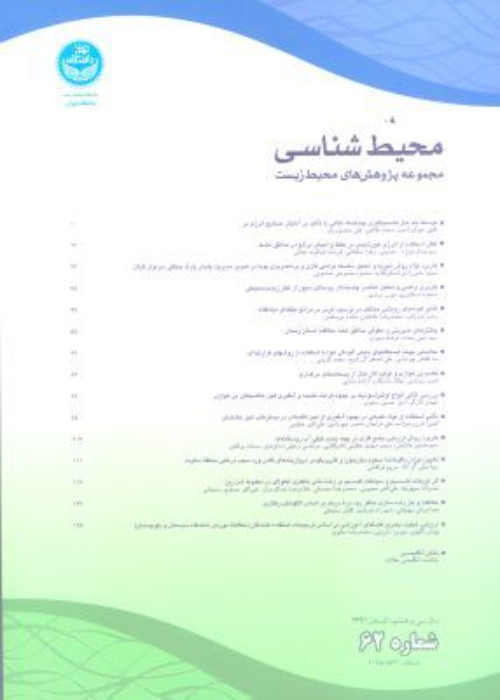Application of Plan - Process - Results (PPR) method in urban plans evaluation
Author(s):
Abstract:
Introduction
So far, many evaluation methodologies for assessing urban plans have been introduced, but comprehensive and systematic evaluation methodologies up to now have received little attention. In recent years the Plan - Process - Results (PPR) approach as a comprehensive and systematic evaluation methodology based on the Policy- Plan/Programme-Implementation-Process(PPIP) methodology has been used in the assessment of urban plans. The PPIP model criteria - conformity, rational process, optimality ex-ante, optimality ex-post and utilisation – in planning the subsequent questions of policy, plan or programme, or the planning process under study and its results are considered. Despite the influence of PPIP model in the planning literature, from the early 1990s to the best of our knowledge PPIP has not been used in real case studies, or not reported but PPR methodology since the two cities, Lisbon and Porto are applied. In this study we outline the key elements of Plan - Process - Results (PPR) methodology, including criteria, sub-criteria and evaluation techniques/data sources introduced and its application in evaluation of urban plans using this methodology in ex-ante evaluation of Abshar (2) land development plan in Mashhad describes. Methodology
Plan - Process - Results (PPR) methodology was developed in 2009 by Oliveira and Pinho for comprehensive evaluation of urban plans that will take into consideration all dimensions of urban plans with greater emphasis on the physical dimension and it used in ex-ante, ongoing, ex-pose evaluation of urban development plan. This methodology exploit the positive aspects and fixes some weaknesses in the ex-ante evaluation methods, to scrutinize criteria of the Policy- Plan/Programme-Implementation-Process (PPIP) methodology. In this study PPR methodology used in the ex-ante evaluation of Abshar (2) land development plan in Mashhad by utilizes a number of criteria that relate to the ex-ante dimension of Plan described. Results
Overall, the specific criteria on which the Abshar (2) land development plan attains the highest scores are the internal coherence and interpretation of planning system (see Table 5). The specific criteria on which the plan attains the Lowest scores are the participation in plan making. Conclusions
This study aims to demonstrate that despite the difficulties and the complexity of the evaluation of planning action it is possible to evaluate urban plan practice in a comprehensive and systematic way. In this paper Plan - Process - Results (PPR) methodology and its application in the ex-ante evaluation of Abshar (2) land development plan in Mashhad was raised. Overall, the results indicate that a greater emphasis on the physical dimension and providing more of the criteria and data sources this methodology differs from other methodologies and makes fertile ground for managers and urban planners to provide to a more favourable evaluation of the planning and implementation of urban plans are made.Moreover, the selection of general and specific criteria, the corresponding evaluation questions, the assessment techniques, and data source indicated comprehensive character of PPR. The limitation of this methodology also requires access to vast sources of data are. Application of the PPR methodology provided not only a sound and substantiated judgment on the case study under evaluation but also provided the basis for identifying a number of singular and important features in planning practice of Abshar (2) land development plan. Overall, according to the characteristics and framework of urban planning systeme in Iran of greater emphasis on physical dimension rather than other dimensions of economic, social, environmental, so this methodology is more consistent with the country's urbanism system and can be applied as a comprehensive and systematic evaluation method in assessting planning and implementing urban plans in Iran. Finally the main challenge of evaluation can be described as a dilemma that planning is faced with uncertainty and evaluator must at the same time be able to judge plan, process and their results.Keywords:
Plan , Process , Results(PPR) , evaluation methodologies , urban plans , Policy , Plan , Programme , Implementation , Process (PPIP)
Language:
Persian
Published:
Journal of Environmental Studies, Volume:40 Issue: 4, 2015
Pages:
1035 to 1050
magiran.com/p1391011
دانلود و مطالعه متن این مقاله با یکی از روشهای زیر امکان پذیر است:
اشتراک شخصی
با عضویت و پرداخت آنلاین حق اشتراک یکساله به مبلغ 1,390,000ريال میتوانید 70 عنوان مطلب دانلود کنید!
اشتراک سازمانی
به کتابخانه دانشگاه یا محل کار خود پیشنهاد کنید تا اشتراک سازمانی این پایگاه را برای دسترسی نامحدود همه کاربران به متن مطالب تهیه نمایند!
توجه!
- حق عضویت دریافتی صرف حمایت از نشریات عضو و نگهداری، تکمیل و توسعه مگیران میشود.
- پرداخت حق اشتراک و دانلود مقالات اجازه بازنشر آن در سایر رسانههای چاپی و دیجیتال را به کاربر نمیدهد.
In order to view content subscription is required
Personal subscription
Subscribe magiran.com for 70 € euros via PayPal and download 70 articles during a year.
Organization subscription
Please contact us to subscribe your university or library for unlimited access!


